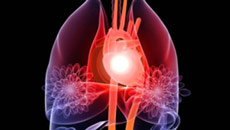The much speculated birth control pill for males may not see the light of day soon as researchers have found that hormonal male contraception via testosterone does not stop the production of healthy sperm.
The problem actually lies in optimal dosing of testosterone, the study showed.
The study involving mice showed that a previously developed male hormonal oral contraceptive method (via testosterone) is unable to stop the production and/or the release of sperm.
“Our research explains why the efficacy of male hormonal contraception is not as effective as expected and it provides clues on how to improve the method,” said Ilpo Huhtaniemi from the Imperial College of London in Britain.
Scientists demonstrated that the male contraception approach by testosterone has an inherent problem - spermatogenesis - where production of sperm from the primordial germ cells does not stop.
They found that administering increasing doses of testosterone to infertile mutant mice did allow sexual function to return at a certain dosing threshold which was expected.
What was not expected, however, is that spermatogenesis also returned at that dose.
This suggests that it is impossible to give a single dose of testosterone that allows for sexual function and the suppression of pituitary gonadotropin secretion, but also does not initiate sperm production.
“Ever since 'The Pill' for women was developed, we have been aiming for an equivalent for men,” said Gerald Weissmann, editor-in-chief of The FASEB Journal that published the study.
"New report suggests that we may be finally reaching the end of administering testosterone for this purpose,” Weissmann added.





